About Christine & Diving Caves
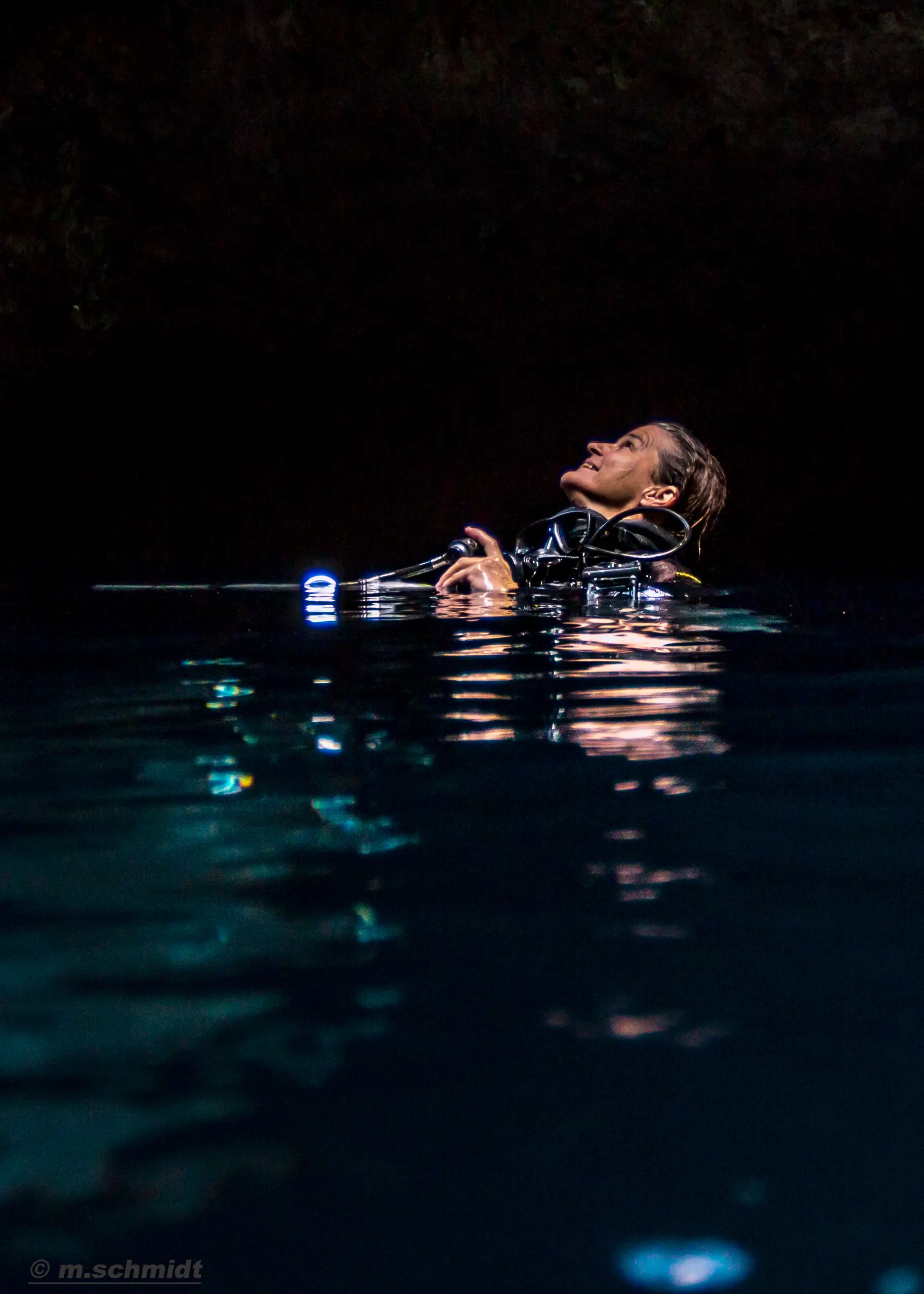
Christine Loew
Founder & Lead Instructor Trainer
With almost three decades of diving and teaching around the world in low-viz lakes, rapid currents along coral reefs and some of the most stunning caves, Christine blends rare breadth of experience with strict safety protocols and conservation ethics.
Instructor Qualifications
- SDI & TDI Instructor Trainer #14584
- Razor Basic Cave Sidemount Instructor #10
- TDI Instructor #14584 – SDI Instructor #14584
- First Response Training International Instructor #14584
Diving Caves (facility #1003925) in Numbers
Diver Courses available
Instructor Level Courses available
Instructor Trainers affiliated
Languages
Christine: Native German, teaches fluently in English & Spanish; understands French and Italian diving lingo.
Deutsch
Español
English
Français
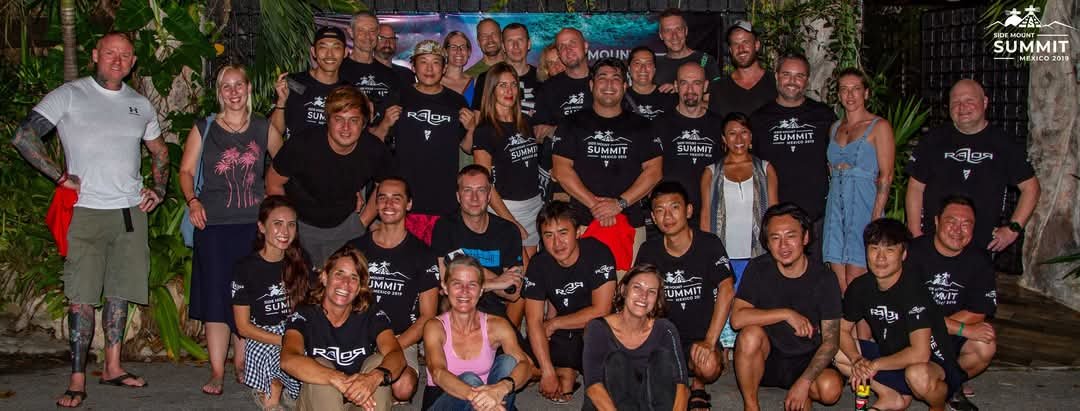
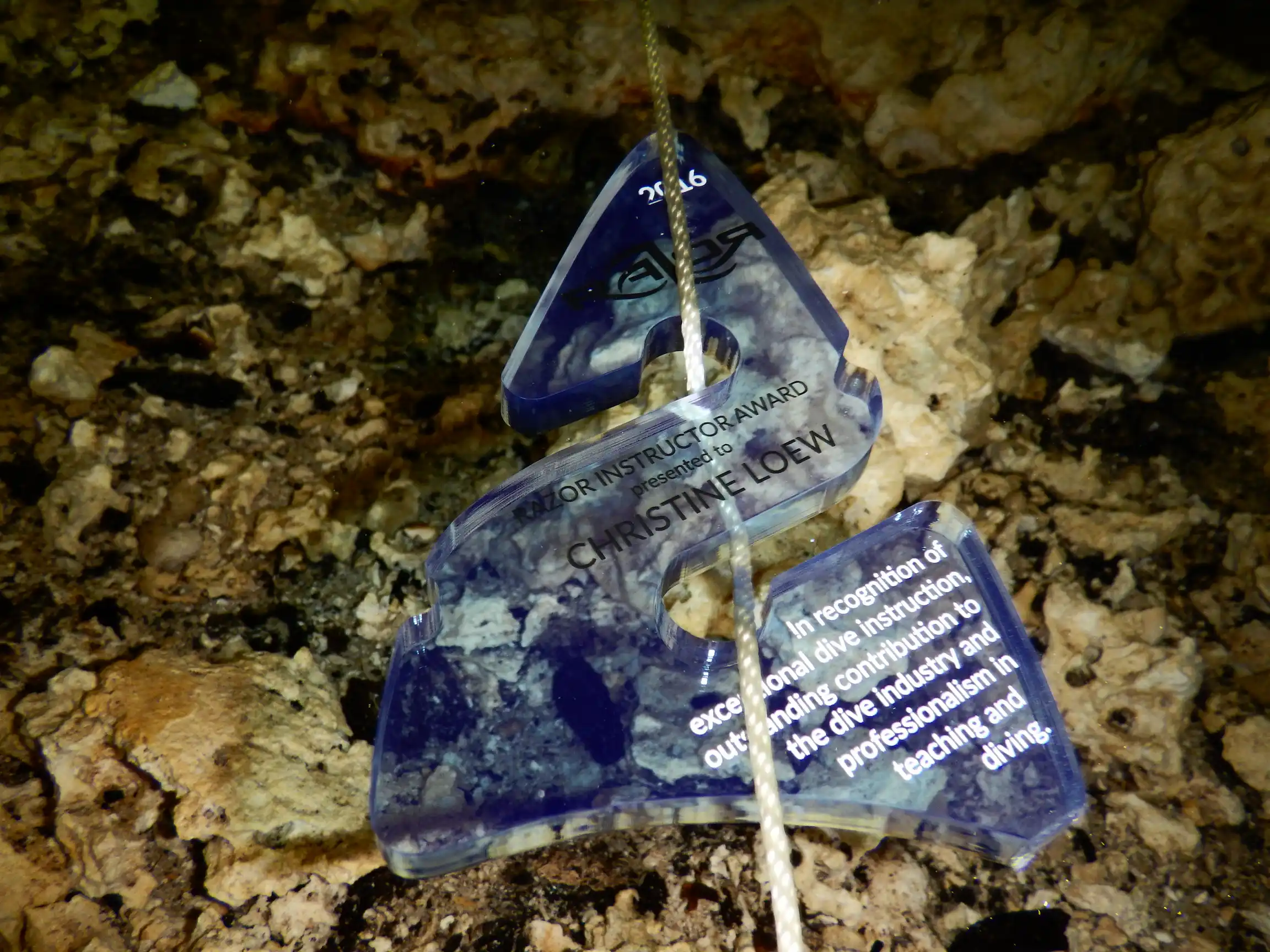
Our Philosophy
Since launching Diving Caves in 2012, we have earned a reputation for private, skill-matched guiding and courses that exceed agency minimums—all while protecting the environments we explore. This commitment is especially evident in our customized tours and excursions to the region’s natural wonders.
Personalised Consultancy & VIP Service
Every trip starts with a direct consultation with Christine; itineraries, training goals and logistics are tailored long before you land.
Quality Promise
We stretch training days, cap student numbers and maintain a learning-first mindset so you leave confident, not just certified.
Equipment & Tanks
All cylinders are regularly serviced and filled by reputable stations; DIN valves are standard, with left-right sidemount pairs on hand for technical divers.
Training & Guiding Spectrum
From recreational open water to technical cave and instructor-level courses under TDI / SDI, we craft programmes that evolve with your ambitions.
Tailored Vacation Packages
Need transfers, lodging, cultural tours or non-diving adventures? We assemble complete packages for solo travellers and large groups alike.
Explore Beyond the Map
For seasoned cave divers we constantly scout new systems across Yucatán and Quintana Roo—adding fresh lines to an ever-growing list of sites.
FAQ
Frequently Asked Questions
If you still have questions, just reach out via email, WhatsApp, or social media—I’m happy to help!
Where is the dive shop located?
Diving Caves operates out of Playa del Carmen, Mexico. We don’t have a traditional storefront because our teaching and guiding style is mobile and flexible. Whether it’s a dive at Cenote Ponderosa or a coffee chat in town, we adapt to the best locations for each activity.
Why do I need to pay a deposit?
We offer a personalized service—you’re not randomly assigned to an instructor. Your deposit secures your dedicated guide, allowing us to schedule efficiently and guarantee top service.
I’m a new customer—how can I be sure this is legit?
Great question! I understand the hesitation. I provide full contact details during our communication, and I’m happy to share letters of recommendation from other trusted businesses.
Your booking is safe. If your guide falls ill, we arrange a qualified backup. And if for any reason we cannot fulfill our commitment, your deposit will be fully refunded.
How long is the ride to the cenotes?
It might surprise you, but we drive into the jungle by car, not to a boat!
Depending on your hotel, traffic, and the selected cenote, the drive takes between 30 minutes and 1 hour 20 minutes each way.
What’s the weather like in the Riviera Maya, and should I be concerned about hurricanes?
The Riviera Maya enjoys a moderately tropical climate year-round, with high humidity and plenty of sunshine. Winter temperatures typically range from 18°C (65°F) at night to 28°C (82°F) during the day, and can feel quite cool in the evenings—so it’s a good idea to pack a light sweater. In summer, daytime temperatures can rise to 36°C (97°F) or more, with warm tropical nights.
Hurricane season runs from June to November, with the highest likelihood of storms between August and October. While Playa del Carmen is located in the tropical hurricane belt, direct hurricane hits are rare. Local infrastructure, emergency services, and accommodation providers are well-prepared for tropical weather, and modern forecasting allows for plenty of advance notice in the event of a storm.
For most travelers, a visit during hurricane season means fewer crowds, lush green scenery, and great deals. Occasional tropical showers may pass through, but they are usually short-lived and followed by sunshine
Do I need to check in when I arrive?
No physical check-in is required. We stay in touch using modern communication tools like WhatsApp, phone, email, or Facebook.
However, please confirm your arrival at least 24 hours before your first scheduled dive. I’ll also need your hotel name and room number to organize smooth pick-ups.
Are refreshments included?
Yes! I always provide fresh drinking water and, when available, options like Aguas de Frutas or soft drinks.
Everything is served in reusable, disinfected bottles with biodegradable straws.
Please note: Alcoholic drinks are never served at dive sites.
What should I bring—and what should I leave at the hotel?
Your diving gear (or request rental in advance)
Certification card (on your first day)
Fit-for-diving medical certificate (if required)
Small towel, clothes to change into
Some small cash for tips or a T-shirt
Leave at the hotel:
Credit cards, travel documents, phones (anything you’re uncomfortable leaving in a locked car)
Sunscreen (not needed in ocean or cenotes; rash guards are better)
Bug spray (I provide eco-friendly alternatives)
Plastic water bottles – I provide reusable BPA-free bottles daily to reduce plastic waste.
How can I pay?
Deposits can be sent to accounts in Germany, Mexico, or others upon request.
PayPal is available (ask for applicable countries).
The remaining balance is to be paid in cash on-site.
Preferred: US Dollars
Also accepted: Mexican Pesos, Euros, Canadian Dollars (mid-market rate applies)
Course fees are paid at the beginning.
Dive packages are paid at the end, including any discounts.
Your booking is safe. If your guide falls ill, we arrange a qualified backup. And if for any reason we cannot fulfill our commitment, your deposit will be fully refunded.
What time zone is the Riviera Maya in, and what about electricity and phone access?
The Mexican state of Quintana Roo, which includes Playa del Carmen and the Riviera Maya, operates on Eastern Standard Time (EST), or GMT -5. Quintana Roo does not observe Daylight Saving Time, which means the time remains consistent year-round— which means in summer we are -7 hours from central Europe, but in winter only -6 hours.
Electricity in the region is delivered at 110 volts, using Type A and Type B plugs (the same as in the U.S. and Canada). If you’re coming from a country with a different voltage or plug type, be sure to bring a travel adapter and voltage converter, especially for sensitive electronics.
To call a number in Mexico from abroad, dial the international country code +52, followed by the 10-digit number (which includes the area code). Most mobile and landline numbers are now standardized to 10 digits. Keep in mind that mobile signal is generally reliable in towns and tourist areas, but can be spotty in remote jungle or cenote regions—so it’s always a good idea to download maps or messages in advance if you’re heading off the beaten path.
Can I cancel my booking for free?
Yes, you can cancel without any fees until 5:00 PM the day before (except for the first diving day). If rescheduling isn’t possible due to illness, we will fully refund your deposit.
For courses, deposits are non-refundable if rescheduling isn’t possible, but we’ll credit the amount toward a future booking.
When is the best time to visit?
There is no bad time to dive here—each season offers something different.
Send me a message with what you’d like to see, and I’ll help you find the best time for your goals.
What happens to my dive equipment after the dives?
Your equipment—BCD, wetsuit, etc.—can be securely stored at my ventilated home (guarded by 7 friendly dogs 🐶).
Take smaller electronics like dive computers, lights, and cameras back to your room for charging or data transfers.
What kind of food is served?
We offer seasonal fruits, local snacks like guacamole, and regional Mexican dishes—either freshly prepared on-site or picked up in the morning.
Special dietary needs (vegan, vegetarian, gluten-free, etc.) can be accommodated with pleasure.
Can I bring lithium batteries for my dive lights and electronics when flying to Mexico?
Yes, you can bring lithium batteries with you when flying to Mexico, including into Cancún International Airport, but there are some important regulations to be aware of.
General Airline Guidelines:
Spare (loose) lithium batteries—like those for dive lights, cameras, or strobes—must be carried in your hand luggage, not in checked baggage.
Keep batteries individually protected in plastic cases, original packaging, or with terminals taped off to avoid short circuits.
Most airlines allow lithium-ion batteries up to 100 Wh without special approval (common for dive lights and camera gear).
You can usually carry 2 spare batteries between 100–160 Wh with airline approval—check with your carrier in advance.
Installed batteries (e.g., in dive lights, computers, or cameras) are generally allowed in both carry-on and checked baggage, but carry-on is still safest.
Tips for Divers:
Label your battery cases or pouches clearly to make security screening easier.
Don’t pack fully charged batteries—store them at ~50–70% charge for safety and longer lifespan.
Bring only what you need, and always check airline-specific rules before flying. We always will have rental lights for you to use if there are any issues.
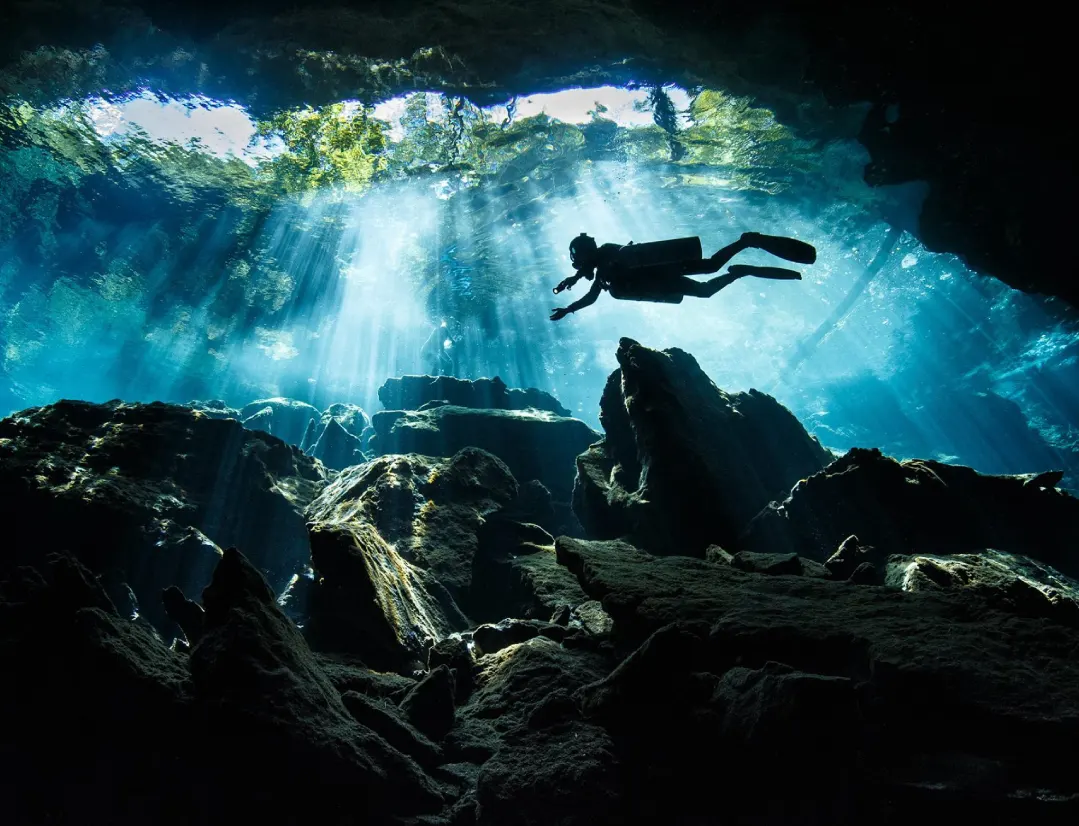
Dive smart, train hard, and discover Mexico’s most captivating water with a mentor who lives and breathes exploration.
